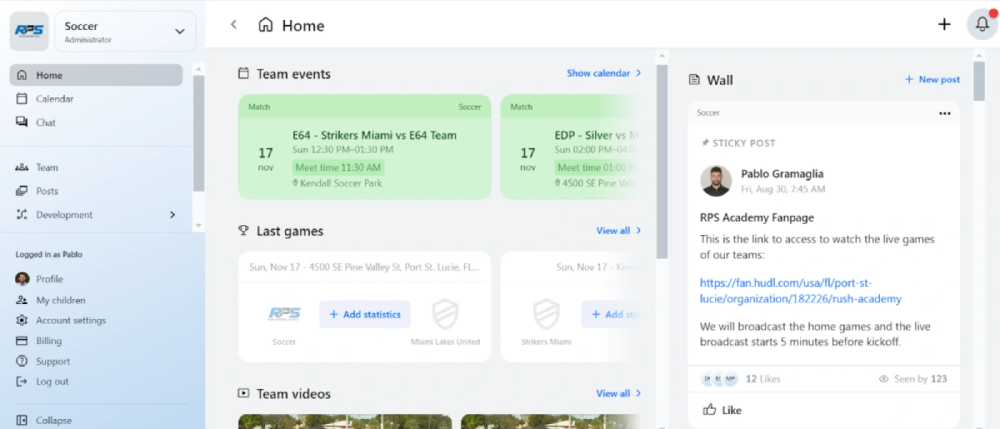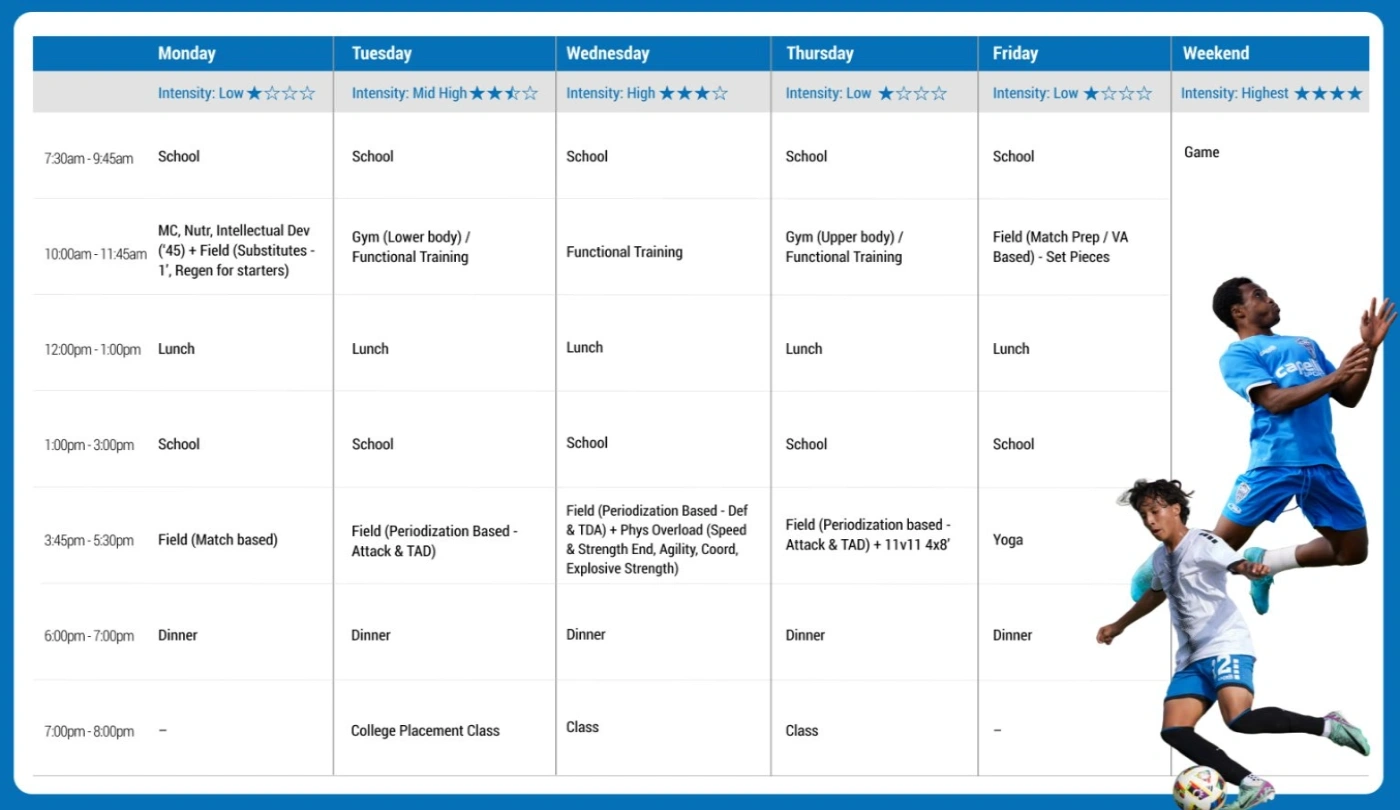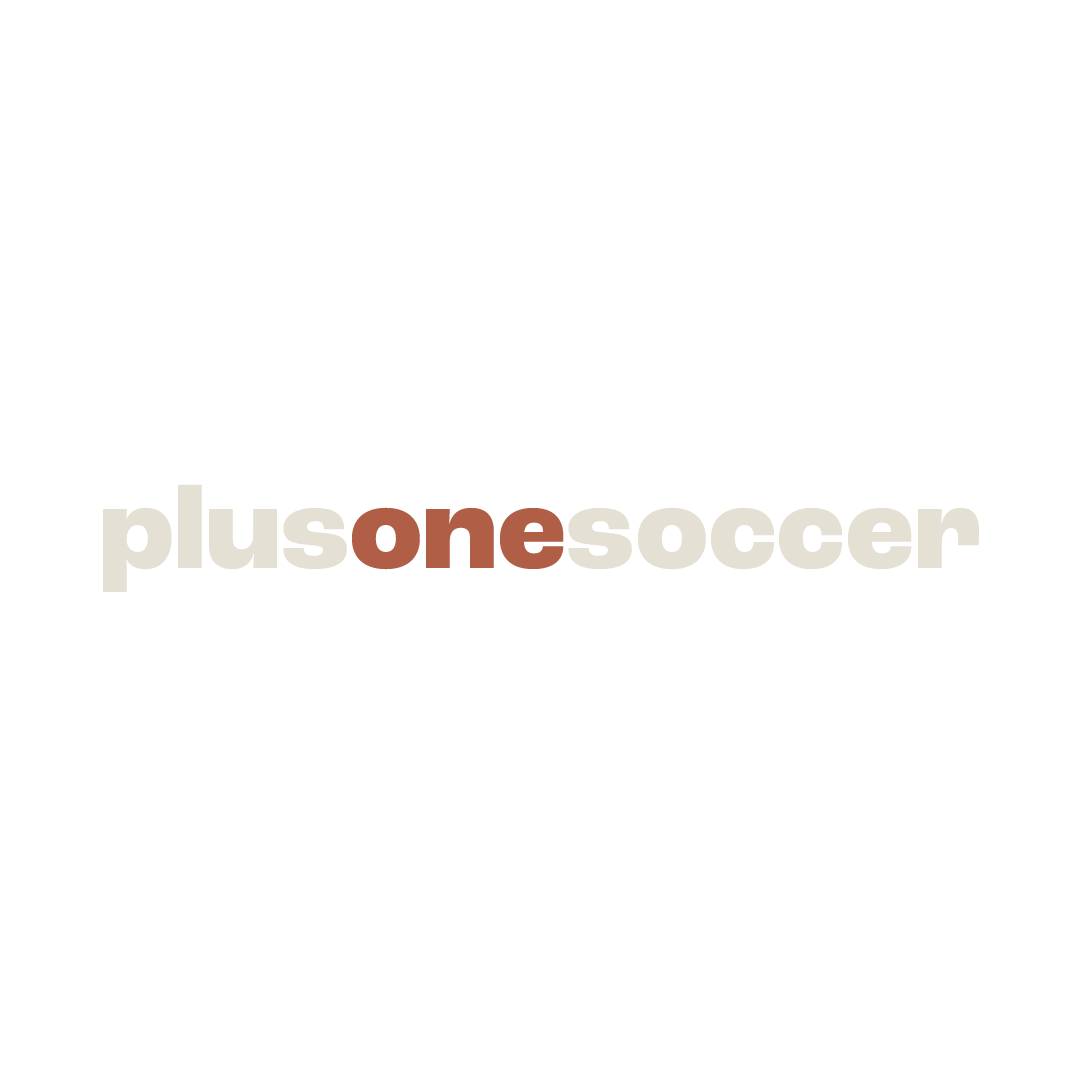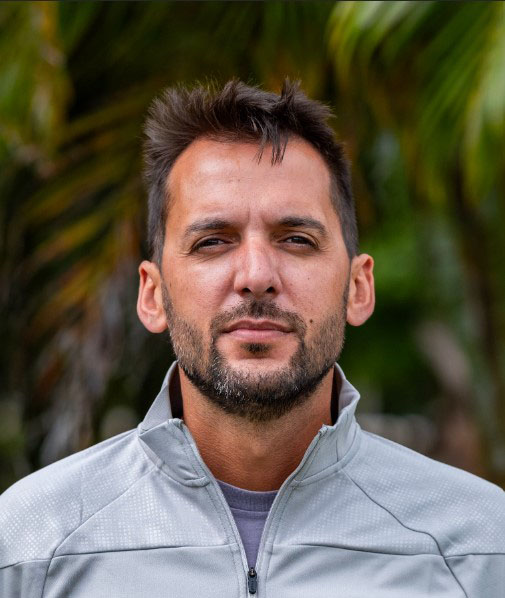This case study is detailed in the book From Paper to Practice: How to Design & Implement the Developmental DNA of Your Club, authored by Pablo Toledo, founder of Plus One Soccer.
Context
RPS Academies is a high-performance academy located in Port Saint Lucie, Florida, operating within the same complex as the Sandpiper Bay All-Inclusive Resort. It offers top-tier facilities (professional fields, gym, kinesiology center, student residence, and its own school) and has a multidisciplinary team of coaches and specialists who support players 24/7.
Unlike a school-based sports program, RPS is a sports academy with a complementary academic program, allowing the scheduling of school blocks around training to maximize the players' holistic development. The program serves full-time boarding and local students, with daily schedules combining sport, study, and social life from 7:00 am to 6:30 pm, following the Florida school calendar.
The Problem
When Pablo took over the leadership of RPS Academies’ soccer program, he faced a context very different from typical youth clubs in the United States. This was a high-performance residential academy with exceptional resources but lacked a clearly defined training methodology, a consolidated collective identity, and an overall program development strategy.
The challenge was not to build something from scratch or simply replicate other clubs' programs without adaptation, but rather to design a structure and strategy aimed at excellence, leveraging what already existed and raising the program’s standards to its maximum potential. The goal was to transition from a scattered operational structure to an organization with a clear purpose, defined strategy, and high professional and human quality standards.
To achieve this, after an extensive initial evaluation, Pablo defined four key pillars for building program excellence, based on analyzing areas with the greatest impact on program quality and client perception:
KEY PILLARS
Organization and general communication.
Quality of sports training.
Level and opportunities for competition.
Level of university or professional placement.
Culture and Values: The Tablets of Moses
Before advancing methodologically, Pablo focused on creating a clear and shared team identity, guided by a living set of values applied daily. This cultural foundation was formalized as five principles known internally as “The RPS Soccer Academy Tablets of Moses,” agreed upon with staff and displayed in the office to be visible and present in every meeting:
The star of the team is the team.
Promotes empathy, discipline, and collective work over individual ego.
We teach from love, not from fear
Demanding but humane coaching based on trust, care, and personal growth.
Quality drives us
Rigorous professionalism in behavior, presentation, punctuality, and preparation.
We develop whole persons, not just footballers
Includes cultural development with readings, movies, debates, and inspirational references
We embrace effort and competition
Training with competitive challenges, teams divided by level, and a culture of perseverance and adaptation.
Organization and General Communication
One of the first priorities upon taking leadership was improving internal and external communication, crucial for service quality and client perception (players and families). In academies like RPS, where many parents live abroad and are not physically present, silence can be perceived as disinterest, so the approach favored over-communication.
The strategy began with implementing the 360Player platform to centralize matches, results, trainings, calendars, and both individual and group communications, creating a transparent and accessible ecosystem.

However, the tool alone wasn’t enough: a structured and systematic communication scheme was developed, including:
- Parent meetings three times a year (start, middle, and end of cycle) to align expectations and share progress.
- Weekly summaries every Monday with coaches’ analysis and objectives.
- Match reminders every Thursday with confirmed details.
- Personalized bi-monthly feedback messages to players and families to foster human contact and progress tracking.
- Live match streaming via Hudl camera and recordings for review.
- A private online photo gallery with training and match images, at a parent’s suggestion.
This simple yet rigorous system significantly improved families' perception of program quality, especially in a high-demand environment with international students.
Sports Training and Methodology at RPS Soccer Academy
The core project section adapted and refined methodological foundations focusing on the adolescent developmental stage, emphasizing tactical specialization while also addressing technical, physical, and mental aspects.
Improvement included
- A common playing model across all teams to facilitate quick adaptation of rotating players using shared language and concepts.
- Player profiles to assist evaluation and scouting based on playing style.
- A model weekly training schedule common to all teams.
- An annual periodization covering a 10-month cycle with players present and 2 months off, integrating football, nutrition, fitness, sports psychology, and university placement preparation with intentional yet flexible planning.
- A glossary of tactical and technical concepts explained with audiovisual tools to unify knowledge and train staff.

Competition
The competition strategy aimed to foster both external and internal high-level competition.
Externally, U16 and older teams competed in Florida’s adult UPSL league to face more experienced and physically developed players.
Internally, players were divided by performance rather than age into Gold Team (first division) and Silver Team (second division), training separately but in overlapping time blocks to maintain unity and constant competition.
Professional and University Placement
This pillar is crucial, as many players and parents seek to maximize professional chances without neglecting college education. The program works to ensure that even if players do not turn professional—a statistically rare outcome—they graduate into good U.S. universities with scholarships, providing a solid “plan B.”
To enhance this area, a strict system was adopted focused on education delivery and personalized student follow-up, including:
Weekly classes for all student-athletes on relevant topics.
Weekly individual meetings to track each student's progress.
Measuring Progress
In 2024, an annual feedback survey was implemented for parents and players to assess performance.
Results were very positive: organization and communication (4.3/5), training (4.5/5), competition (4.4/5), with university placement as the weakest area (3.4/5).
Additionally, 80% of families considered this the best edition of the program to date.
Thus, a simple structure combined with a concrete, measurable strategy proved essential for creating a continuous improvement dynamic, and even quickly identify the areas of improvement (College Placement Process in this case).
RPS now aspires to become the best high-performance residential academy in the world.


